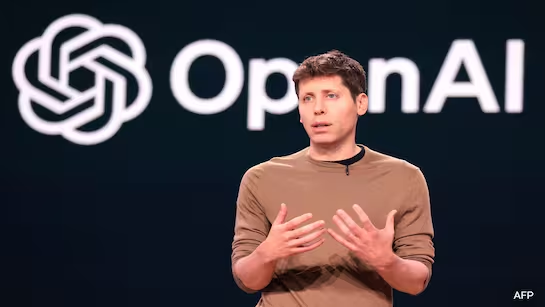OpenAI Unveils ChatGPT’s New Search Capabilities, Challenging Google’s Dominance
On Thursday, OpenAI made a significant move in the tech landscape by enhancing its ChatGPT AI chatbot with powerful new search engine capabilities.
With this upgrade, ChatGPT now delivers timely answers sourced directly from the web, representing a step forward in providing users with the kind of real-time, up-to-the-minute information traditionally reserved for search engines like Google. This integration is the latest in OpenAI’s quest to establish itself as a strong contender in the field of web search and generative AI.
The revamped ChatGPT now features built-in web search, allowing users to obtain current information on various topics, ranging from stock prices and breaking news to sports scores and weather updates.
Previously, these types of queries were either not possible or required the use of a conventional search engine. Now, however, users of ChatGPT—especially those with a paid subscription—can access this information directly through the chatbot interface, with the feature expected to roll out to free users over time.
Users can enable the search feature either by default or by selecting the new search icon within the app. OpenAI has also partnered with notable global media and news outlets, including France’s Le Monde, Germany’s Axel Springer, and the UK’s Financial Times, to integrate their content directly into search results. This collaboration enables ChatGPT to deliver not only real-time data but also high-quality, sourced information that aligns with reputable news providers.

The search interface, now available on ChatGPT’s homepage, provides users with relevant web sources and external links. OpenAI’s aim is to offer a streamlined user experience that mirrors Google’s familiarity but removes the clutter of advertisements, creating a more focused and responsive platform for answering user queries. Examples shown by OpenAI resemble Google search results and even Google Maps, making it a potential rival to Google’s core offerings.
For those familiar with Perplexity, another AI-powered search engine, ChatGPT’s new interface may look similar, as both platforms provide conversational search results backed by sourced information. By integrating a search functionality directly into the chatbot, OpenAI is following in the footsteps of Perplexity, which has offered this type of service since its inception.
READ ALSO: IMF Cautions on Rising Risks to Asia’s Economy Amid Trade Tensions and Slowing Growth in China
However, both OpenAI and Perplexity face ongoing legal scrutiny, with the New York Times filing lawsuits against them over content usage. The claims argue that these companies have linked to or scraped copyrighted material without appropriate permissions, raising complex questions around copyright and fair use in the age of AI.
Rather than releasing this search feature as a separate product, OpenAI has embedded it seamlessly within ChatGPT, creating an all-in-one experience. This enables users to switch between asking general questions and performing specific searches without needing multiple apps or services. OpenAI’s intention is clear: to become a one-stop solution for users seeking both conversational assistance and real-time web search.
Moreover, OpenAI is inviting feedback from content creators and publishers, offering a unique opportunity for websites to opt into ChatGPT’s search results. This opt-in model aims to balance accessibility with control, allowing publishers to decide how their content appears within the platform.
By taking this collaborative approach, OpenAI hopes to build a robust ecosystem that respects the rights of content creators while providing users with a comprehensive source of information.
This latest update signifies OpenAI’s ambitious push to diversify ChatGPT’s capabilities beyond just conversational AI. By enhancing its platform with search capabilities, OpenAI is now competing directly with search giants like Google and Microsoft’s Bing. The new feature will give ChatGPT users the power to access current data, and this could reshape how millions of people search for and access information online.

While legal battles and content rights issues may present challenges, OpenAI’s latest move clearly indicates the company’s intent to drive innovation in how information is accessed in the digital age.
With this development, ChatGPT is evolving from a purely conversational tool to a versatile AI assistant capable of addressing a broad range of informational needs, establishing it as a key player in the future of online search and AI-driven assistance.
Since launch, AI chatbots like ChatGPT and Anthropic’s Claude have faced limitations due to outdated data cutoffs, making their responses less current than those generated by Google or Microsoft’s AI-powered search results. Now, OpenAI is addressing this by adding real-time search capabilities to ChatGPT, offering users fast, ad-free answers directly sourced from the web.
OpenAI CEO Sam Altman called the feature his “favorite” since ChatGPT’s 2022 debut, describing it as a quicker, easier way to find information.
This development comes as OpenAI solidifies its position as an internet powerhouse, recently reaching a $157 billion valuation with investors like Microsoft, SoftBank, and Nvidia. Adding search to ChatGPT will likely increase OpenAI’s computing demands, but Altman is betting that real-time data access will draw new users and bring AI closer to the heart of everyday internet use.
Discover more from Cine critique
Subscribe to get the latest posts sent to your email.

